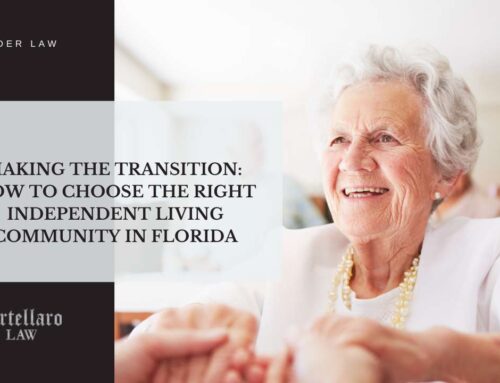Elder Law | When caring for an aging parent, there are several challenges and hurdles both emotionally and legally that arise. Whether it’s a physical ailment, or mental disabilities like Alzheimer’s or dementia, there are legal implications you should be aware of when caring for your parents.
If a parent has been diagnosed with Alzheimer’s, but is still legally defined as competent, it can be beneficial to put in place a durable power of attorney for both health and finances. This cannot be put in place if the subject has already been legally defined as incompetent. In that case, a legal guardianship will need to be established, which is a much more complicated and time-intensive process.
It’s important to note that your durable power of attorney should explicitly state the abilities you have regarding finances and health. These can be separate documents but need to explicitly state access to ensure your parent is completely taken care of.
Additionally, if your parent is admitted into a long-term care facility, having a HIPAA consent form in place allows you access to medical information regarding your parent. Otherwise, the facility is legally required to keep your parent’s information private. Every state differs in their HIPAA laws, so speak with an elder law attorney to get the right information for your situation.
There are also physical tests, like driving a car, to determine an elderly parent’s physical capacities. Many children worry about their aging parents driving a car, and performing daily living activities like grocery shopping or taking care of themselves. It’s important to put legal documents in place before the struggles with daily living activities begin to occur.
If you are taking care of an elderly parent, or have questions about the process, contact the law offices or Mortarello Law to speak with a specialist in elder law.





